The following transcript is from a Q&A at the Prime Minister’s Breakfast on Thursday 10 April. The question was asked by Presbyterian Support Central’s CE, Joe Asghar.
ASGHAR: I’m here supporting the elders that have made New Zealand what it is today, and aged care a sector that could do so much more but needs that critical infrastructure investment that you talked about, and securing and delivering on that has been a real challenge, moving to a point of crisis where those elders are actually going to really struggle to find a place to live and that they can call home. So in your five pillar model, where do you see the aged care sector fitting, and what do you think it’s future will look like?
LUXON: We want to build out the world’s best country right, I mean that’s really our goal, I mean you look at it and say we’re bang smack in the middle of the Indo-Pacific region, we have abundant natural resources, all around the world you’re seeing grumpy populations in an age of disruption, and as a result social and democratic institutions being sort of unwound or weakened, but that’s not the case here in New Zealand, and importantly we have incredibly talented, smart people, so there should be, I start from the starting point of, there should be no excuses for why we can’t build the best small advanced country on earth period, right, let’s just start there. So then you say well how do you do that? You’ve got to get your economic engine moving, and that’s what I’ve been talking about with that five point plan, those are the five things I think we need, look at how do you create more wealth for people, how do you lift collective living standards, it’s those five pillars that I’ve talked about to drive economic productivity.
On the social space, what we actually have to deal with is the underpinning organising thought needs to be this notion of social investment and that’s what Bill English started with the theory of that under the previous National lead government but actually it never got into the bloodstream of the place and that’s why I keep saying we have to partner as three actors in civil society; government, business, community working together on all of that, we have to work hard and Louise Upston’s doing some great work on that, getting the cash out of the bureaucracy and out to community organisations that can secure better outcomes for our people whether it’s in aged care or whether it’s in a number of social services across the peace, government historically does not a good job of that. There are innovators, social entrepreneurs that are doing incredible work in our social services, tackling really difficult challenging problems, social problems, that actually have a lot of overlap. People in emergency housing also have school and housing and security but they also then have kids that are bouncing in and out of schools and are really challenged, now you’ve got to get to the root cause of what are those issues and let’s try and get some innovation into trying to deal with those problems in a different way versus carrying on doing everything we’ve done the same way for thirty years. So I think social investment becomes the model for all our social thinking and then with respect to environments about emissions reduction, you know, it’s the organising thought.
So in the aged care sector yes there are real challenges, and when you look at the, when you look at this over the last couple of years, the outlook for where it’s going and the number of beds that are coming out of the system and you get into what nurses are paid in aged care versus in the general hospital system versus the community sector, we’ve got to work our way through all those issues, so there are real challenges in aged care, and we’ve got to be able, but I think we’ve got to get again government and businesses in this case, government and community in this case, working together, on whose best to deliver and secure improved outcomes, and it’s often businesses and its often community organisations and governments got a role to play for sure, I’m not abdicating from that, but it’s just working together we’ll actually get that sorted so um yeah a lot to do in aged care. I hope you had a chance to meet with Simeon Brown our new Health Minister, I’m sure he’ll take a meeting.
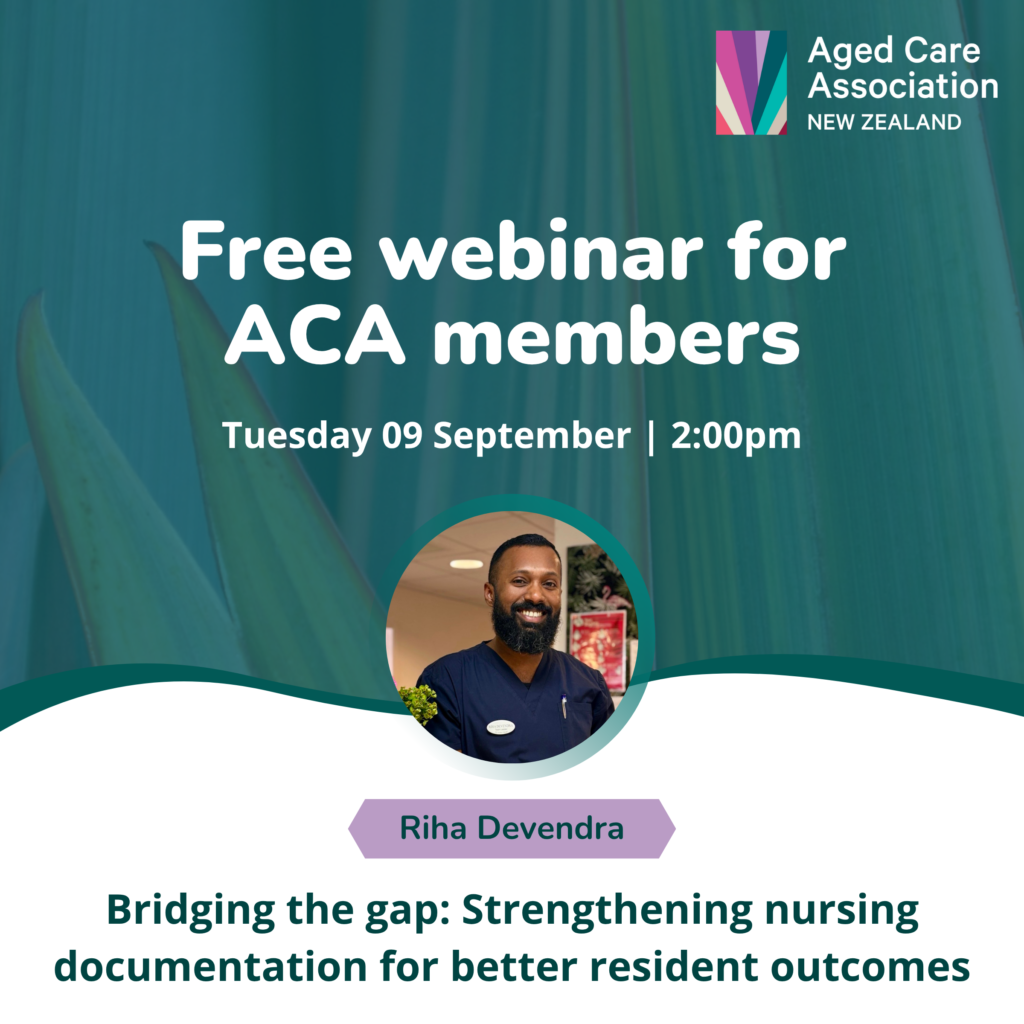

 Riha Devendra is the Clinical Team Lead at Te Hopai, bringing a diverse clinical background that includes emergency nursing, critical care, and medical evacuation. Since transitioning into aged care, he has become a strong advocate for clinical leadership, systems improvement, and person-centred care.
Riha Devendra is the Clinical Team Lead at Te Hopai, bringing a diverse clinical background that includes emergency nursing, critical care, and medical evacuation. Since transitioning into aged care, he has become a strong advocate for clinical leadership, systems improvement, and person-centred care.
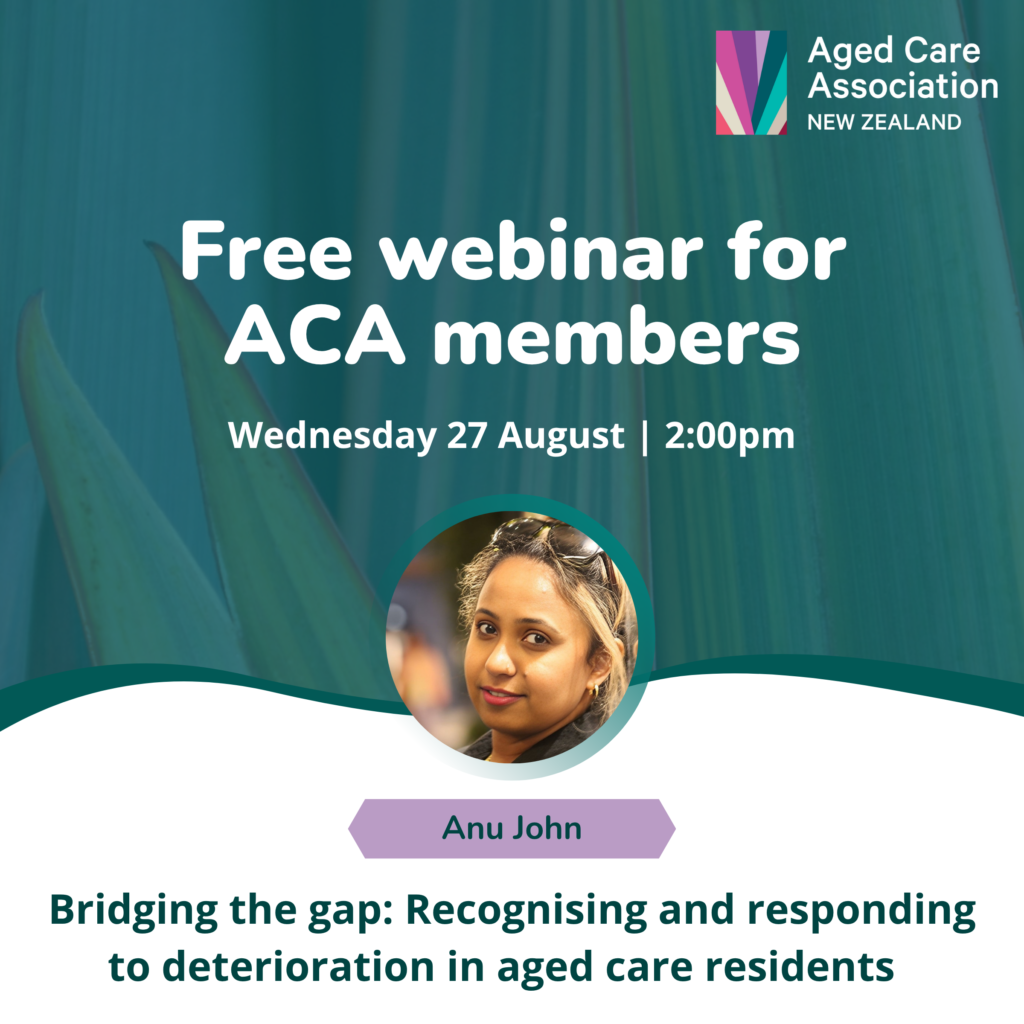

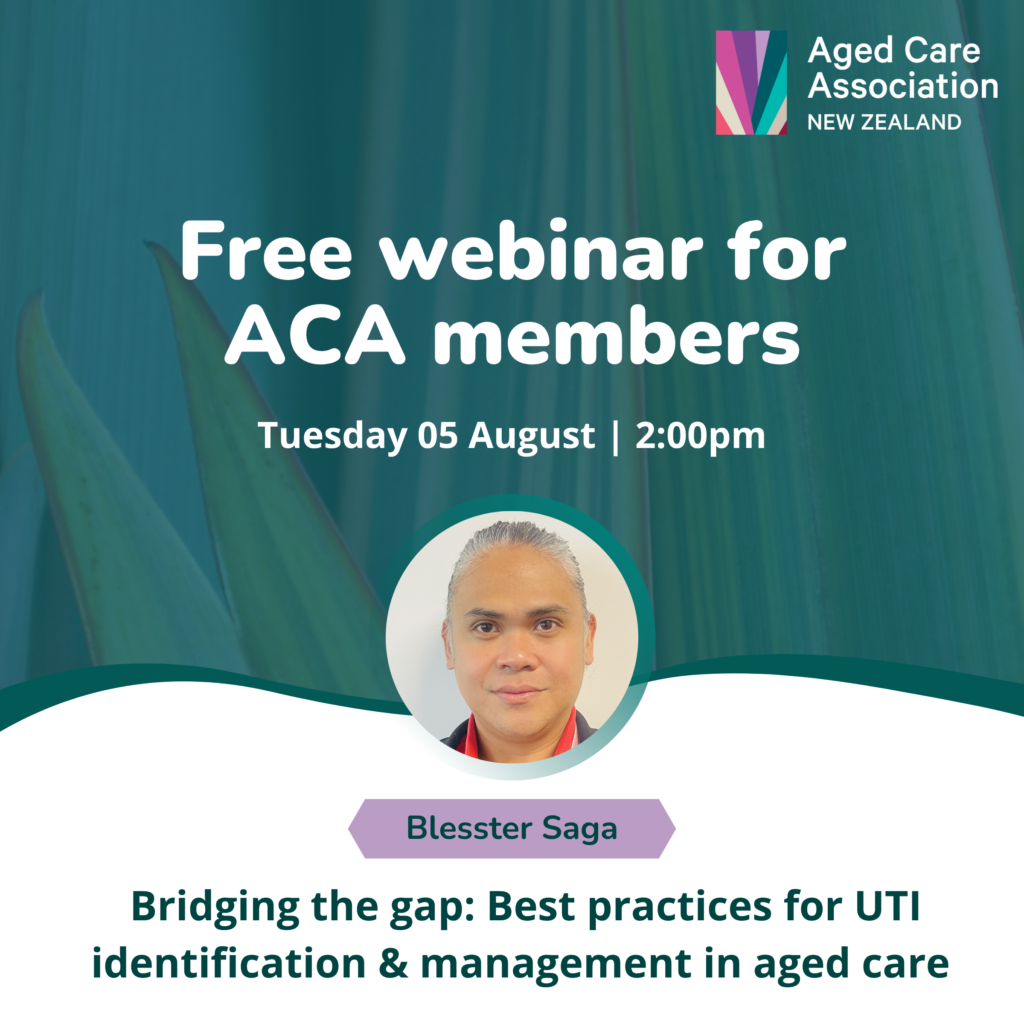
 Blesster Saga is a nurse leader with deep expertise in infection prevention and aged residential care. His nursing journey has taken him from operating theatres in Cebu to senior leadership roles across New Zealand. Currently the Group Clinical & Quality Manager at Promisia Healthcare, Blesster has led major service improvements, including infection control initiatives and award-winning care programmes.
Blesster Saga is a nurse leader with deep expertise in infection prevention and aged residential care. His nursing journey has taken him from operating theatres in Cebu to senior leadership roles across New Zealand. Currently the Group Clinical & Quality Manager at Promisia Healthcare, Blesster has led major service improvements, including infection control initiatives and award-winning care programmes.
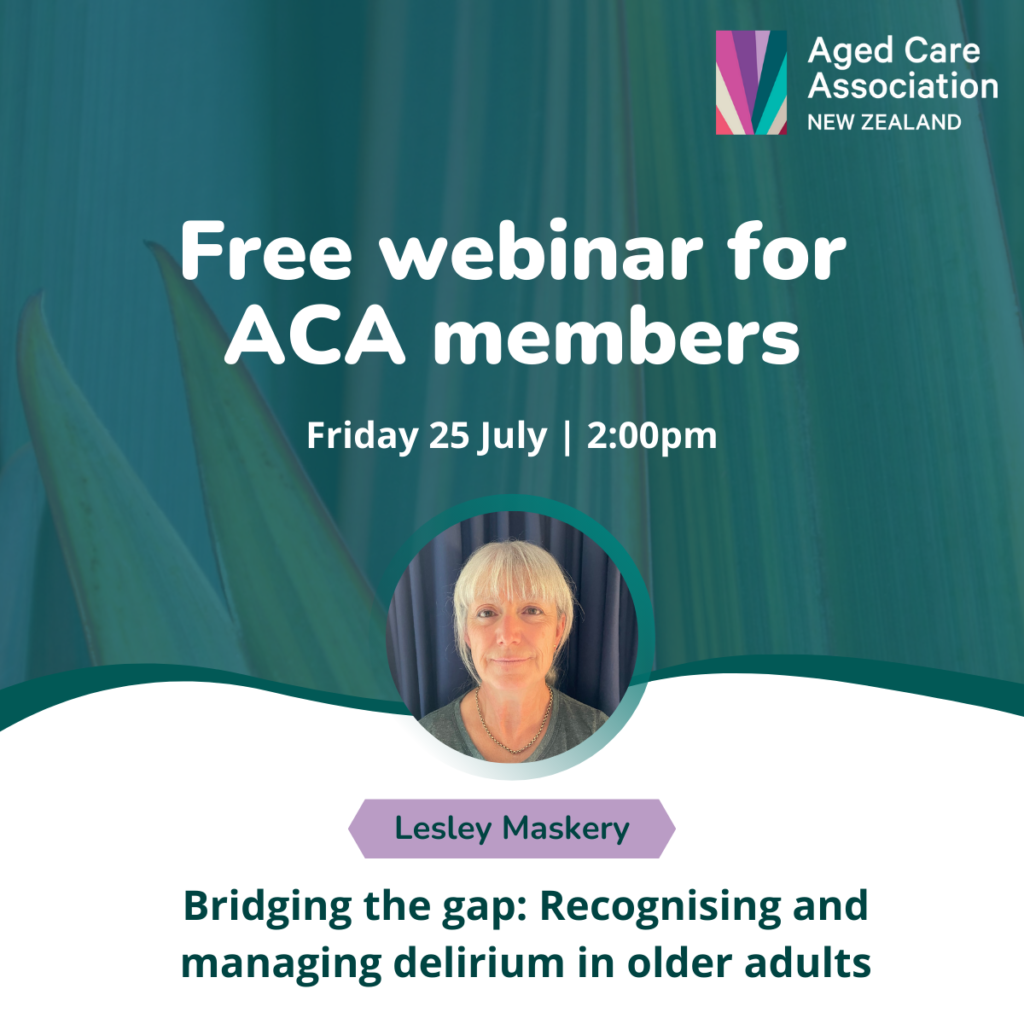

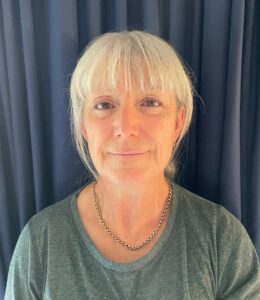 Lesley is a Nurse Practitioner, with over 30years experience in Older Persons’ Mental Health. She trained in the UK and worked both in hospital in-patient settings and as a Community Psychiatric Nurse. She moved to NZ in 2005, completing her Nurse Practitioner (NP) registration in 2018, and has worked within both the DHB and Aged Care sectors here in NZ.
Lesley is a Nurse Practitioner, with over 30years experience in Older Persons’ Mental Health. She trained in the UK and worked both in hospital in-patient settings and as a Community Psychiatric Nurse. She moved to NZ in 2005, completing her Nurse Practitioner (NP) registration in 2018, and has worked within both the DHB and Aged Care sectors here in NZ.

 Marie has a nursing background, joined Mölnlycke in 2008, and is based in Sydney. With valuable experience as a Senior Account Manager, Marie has managed Hospital, Aged Care, Community and Wound Care portfolios. In 2023, Marie transitioned into the role of Clinical Educator, overseeing the Customised Learning virtual education platform and delivering product-based wound care education to Health Care Professionals across Australia and New Zealand.
Marie has a nursing background, joined Mölnlycke in 2008, and is based in Sydney. With valuable experience as a Senior Account Manager, Marie has managed Hospital, Aged Care, Community and Wound Care portfolios. In 2023, Marie transitioned into the role of Clinical Educator, overseeing the Customised Learning virtual education platform and delivering product-based wound care education to Health Care Professionals across Australia and New Zealand.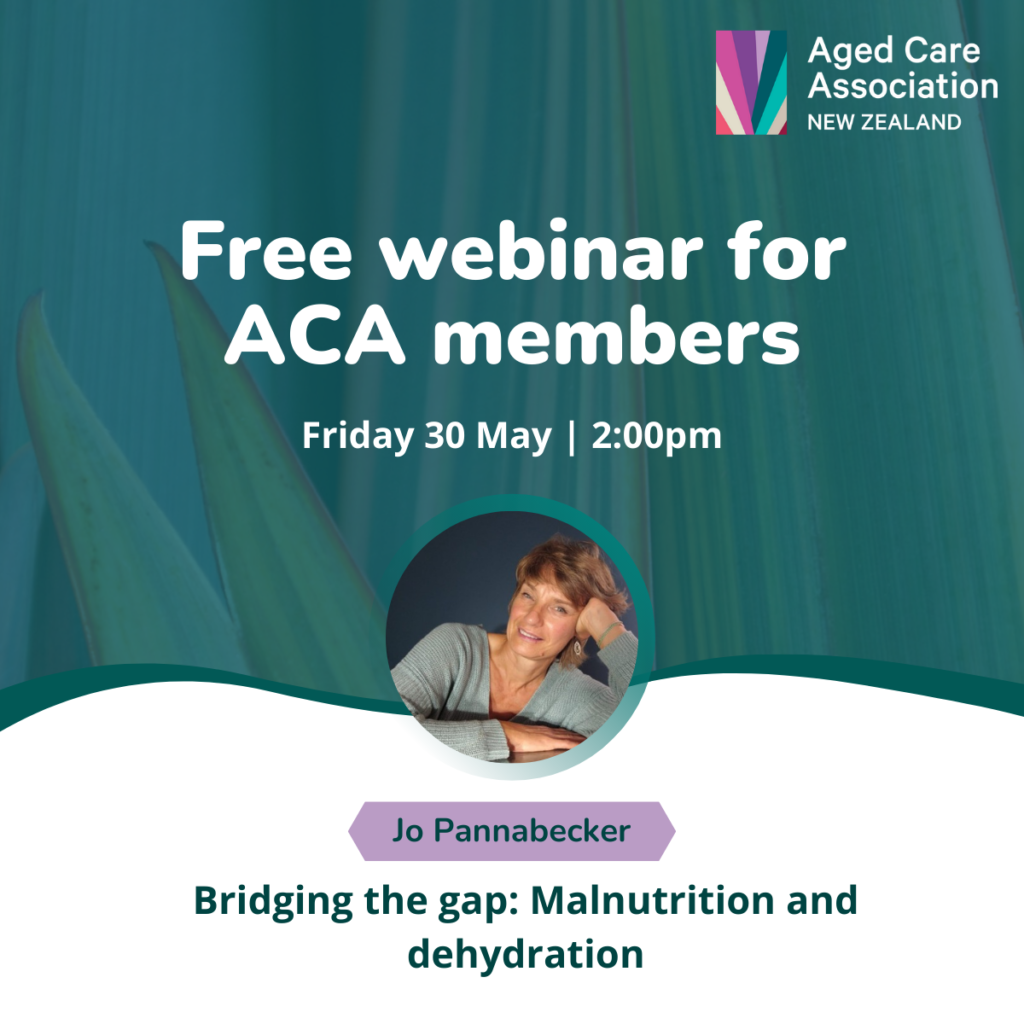


 Jo Pannabecker is an experienced and passionate dietitian dedicated to supporting the unique nutrition needs of older adults.
Jo Pannabecker is an experienced and passionate dietitian dedicated to supporting the unique nutrition needs of older adults.